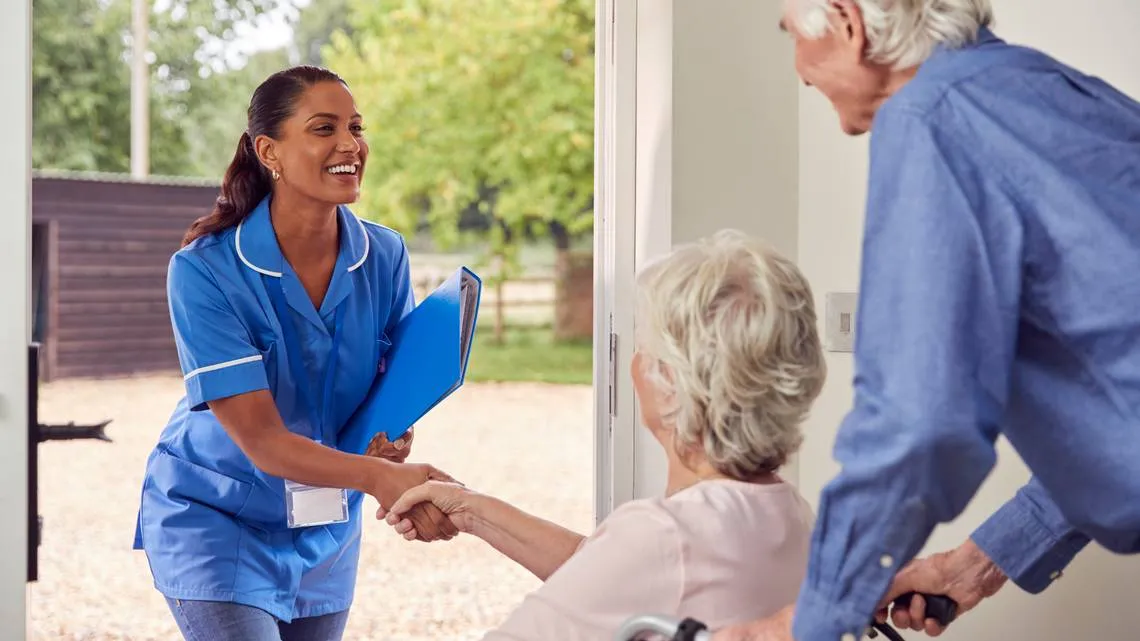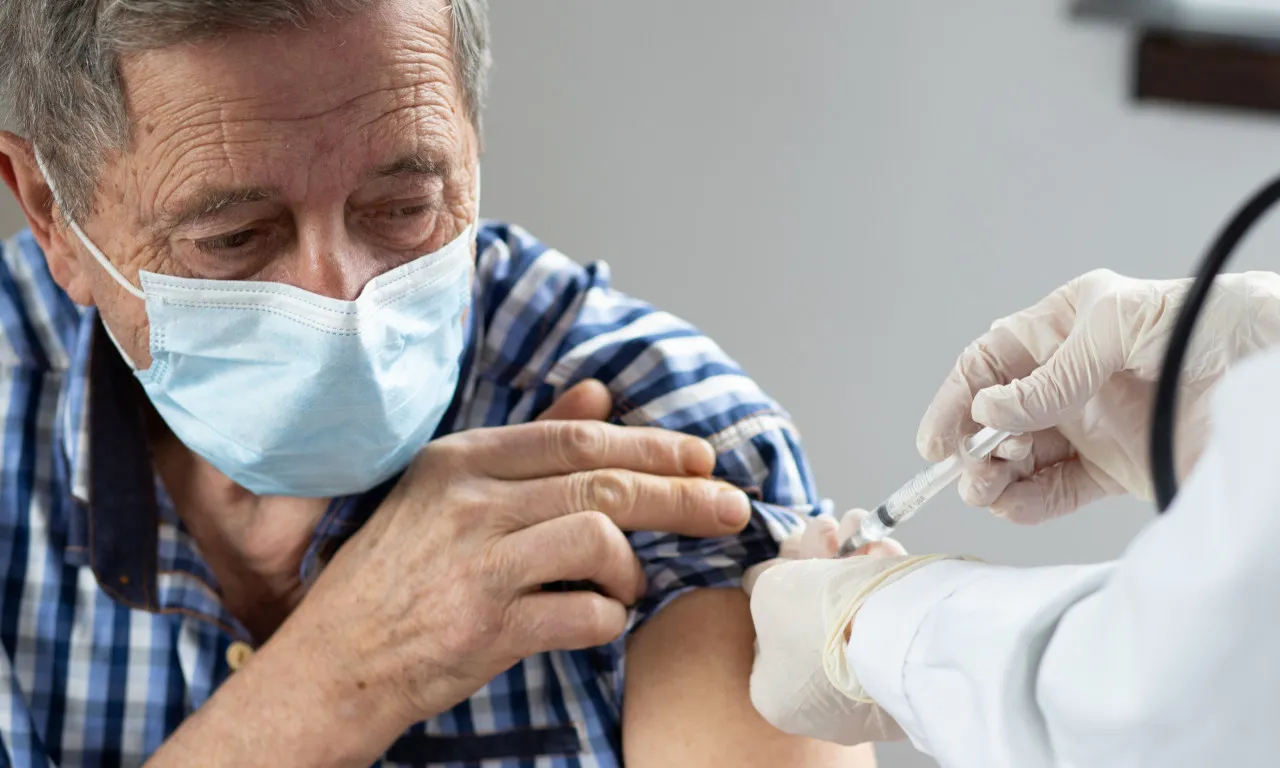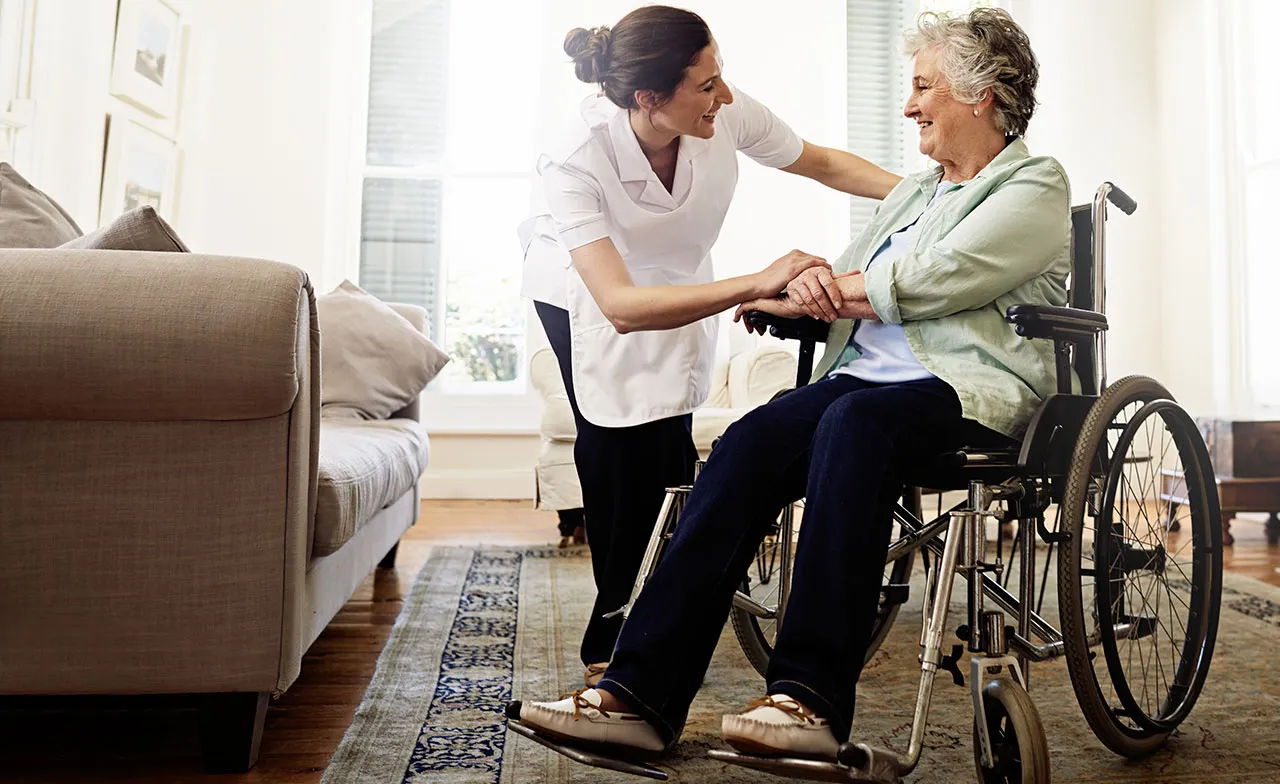Dehydration in seniors is a silent but serious threat, often overlooked until complications arise. Aging reduces thirst signals, while medications, chronic illnesses, or mobility issues further heighten risks. Warning signs like dry mouth, dark urine, dizziness, or sudden confusion can mimic “normal aging,” making vigilance crucial. Left unchecked, dehydration can spiral into urinary infections, kidney strain, or dangerous falls. Caregivers must proactively monitor fluid intake, recognize subtle symptoms, and act swiftly. This blog unpacks key indicators, from sunken eyes to rapid heartbeat, and offers actionable steps to safeguard your loved one’s health. Knowledge and early intervention are the first lines of defense.
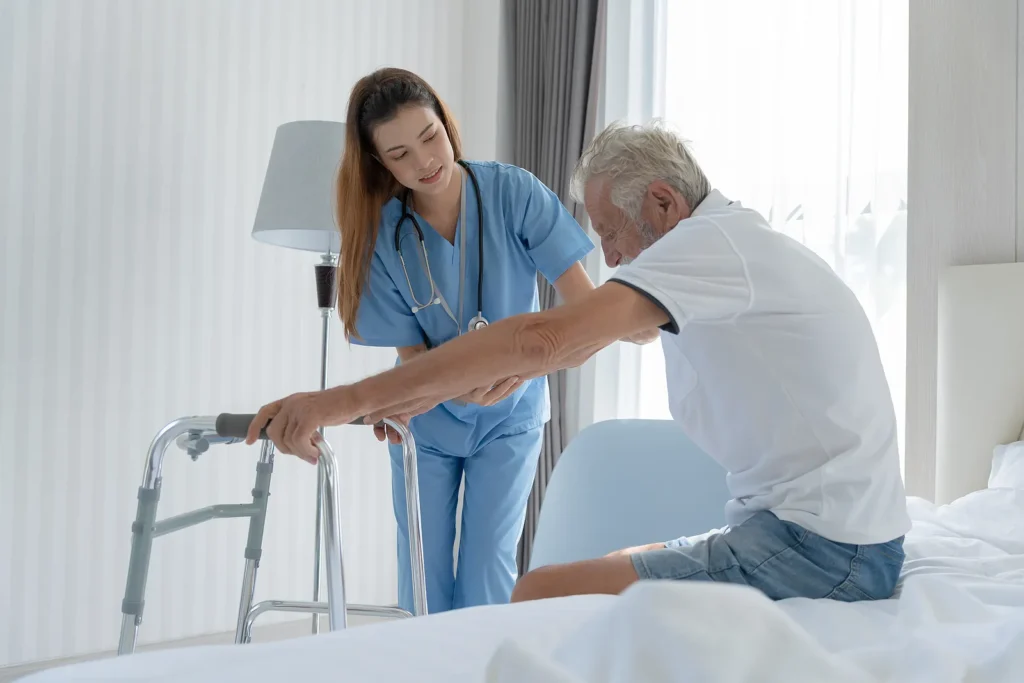
Common Signs of Dehydration in Seniors
Dehydration in seniors often presents subtly but critically. Watch for dark urine or reduced urination, dry mouth/cracked lips, and dizziness upon standing. Fatigue, confusion, or irritability may signal brain fog from low fluids. Headaches, persistent dry skin (slow skin pinch rebound), and constipation are red flags. Severe cases show sunken eyes, rapid heartbeat, or low blood pressure. Aging masks thirst, so proactive monitoring is key. Clusters of symptoms—like confusion paired with dark urine—demand immediate action to prevent complications like falls or organ strain. Prioritize hydration and seek medical help if concerns arise.
Changes in Urine
Dehydration in seniors often manifests through urine changes. Dark yellow or amber urine, reduced frequency (fewer than 4 bathroom trips daily), or a strong odor indicate concentrated waste due to insufficient fluids. Even with incontinence aids, urine should remain light-colored. Chronic dehydration may also cause urinary tract infections. Monitoring output is critical, as seniors may not recognize or report changes. Hydration helps kidneys flush toxins, so persistent dark urine warrants immediate attention.
Dry Mouth and Tongue
A dry, sticky mouth or cracked lips signal dehydration. Reduced saliva production in aging exacerbates discomfort, making swallowing or speaking difficult. Seniors may avoid fluids due to this dryness, worsening the cycle. Check for a parched tongue or refusal of dry foods. Offer ice chips or moistening gels for relief. Chronic dry mouth increases cavity risk, so pairing hydration with oral care is vital.
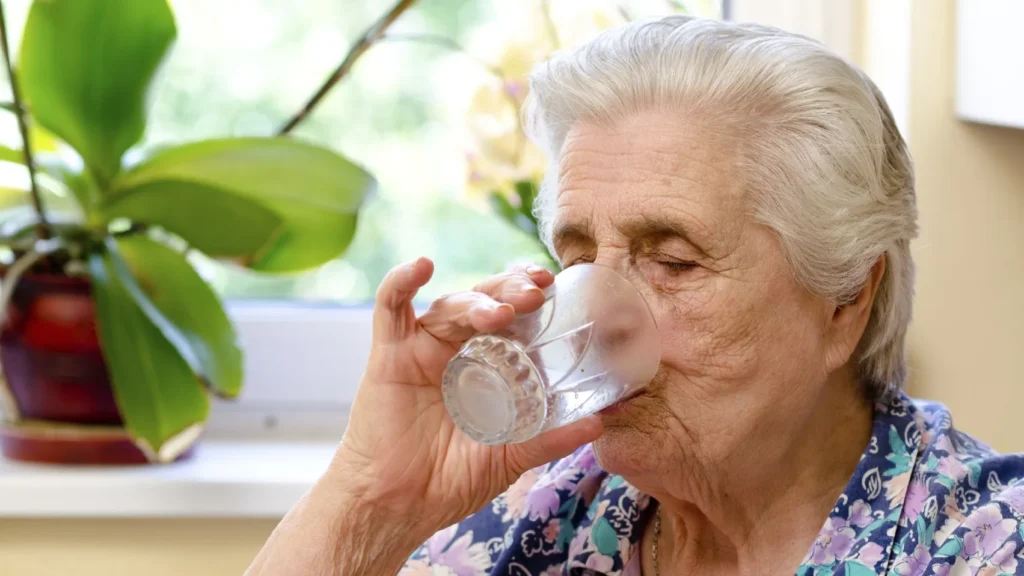
Dizziness and Lightheadedness
Dehydration lowers blood volume, causing dizziness upon standing (orthostatic hypotension). Seniors may feel unsteady, increasing fall risks. This occurs as the body struggles to maintain blood flow to vital organs. Prolonged sitting/lying positions worsen symptoms. If dizziness persists despite rest, seek medical evaluation. Encourage slow posture changes and ensure fluids are consumed before moving.
Fatigue and Weakness
Lethargy or sudden exhaustion often accompanies dehydration. Reduced blood volume limits oxygen delivery to muscles and organs, causing fatigue. Seniors may nap excessively or struggle with routine tasks. Weakness, particularly in limbs, can mimic other conditions (e.g., anemia), so rule out dehydration first. Chronic fatigue linked to low fluid intake may indicate long-term dehydration.
Confusion and Irritability
Dehydration impairs cognition, triggering confusion, agitation, or incoherent speech. Reduced blood flow to the brain worsens existing conditions like dementia. Sudden mood swings or disorientation—especially in alert individuals—are red flags. Address hydration immediately, as prolonged confusion may escalate to delirium or hospitalization.
Headaches
Dehydration headaches stem from reduced cerebrospinal fluid and blood volume, causing brain tissue to contract. Seniors may describe throbbing pain or pressure, often worsening with movement. Persistent headaches unrelieved by rest or medication warrant fluid replenishment. Chronic dehydration headaches can mimic migraines but resolve with consistent hydration.
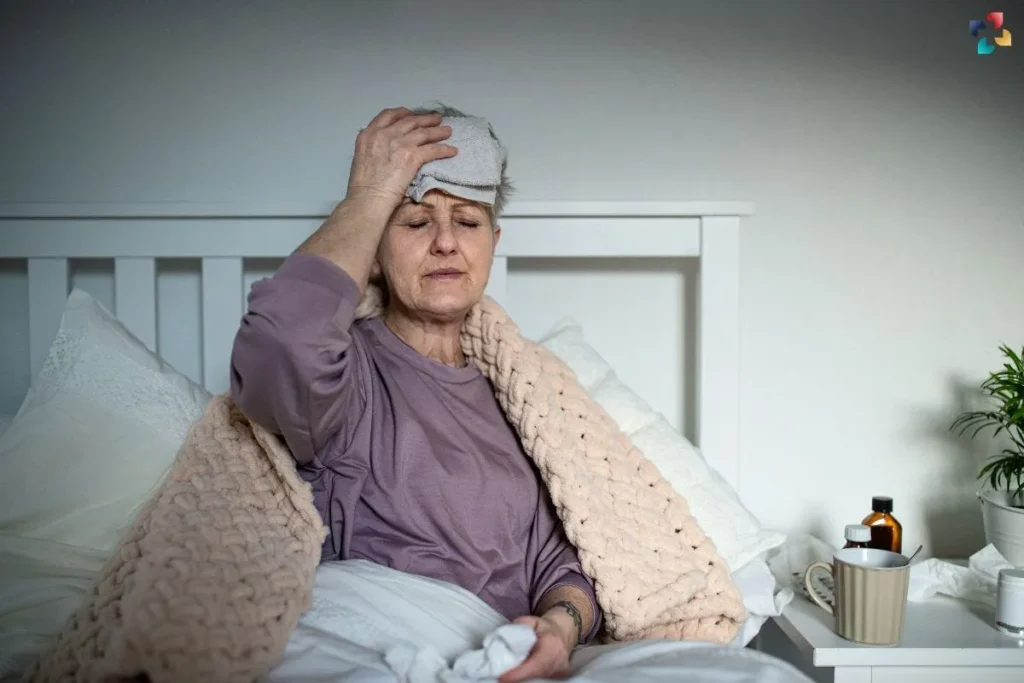
Dry Skin
Dehydrated skin loses elasticity, appearing rough or flaky. Perform a “pinch test”: gently pinch the forearm—slow rebound indicates dehydration. However, aging naturally reduces skin elasticity, so pair this test with other symptoms. Cracked lips or skin folds (e.g., underarms) feeling dry also signal fluid loss.
Constipation
Dehydration hardens stools as the colon absorbs more water. Seniors with limited mobility or fiber intake are especially vulnerable. Infrequent bowel movements or straining may indicate chronic dehydration. Increasing fluids alongside fiber can alleviate symptoms, but persistent constipation requires medical review.
Sunken Eyes
Sunken eyes or hollowed cheeks suggest severe fluid loss. Tissues around the eyes lose volume, creating a hollow appearance. This late-stage sign often coincides with extreme fatigue or confusion and demands urgent medical care to restore fluids intravenously.
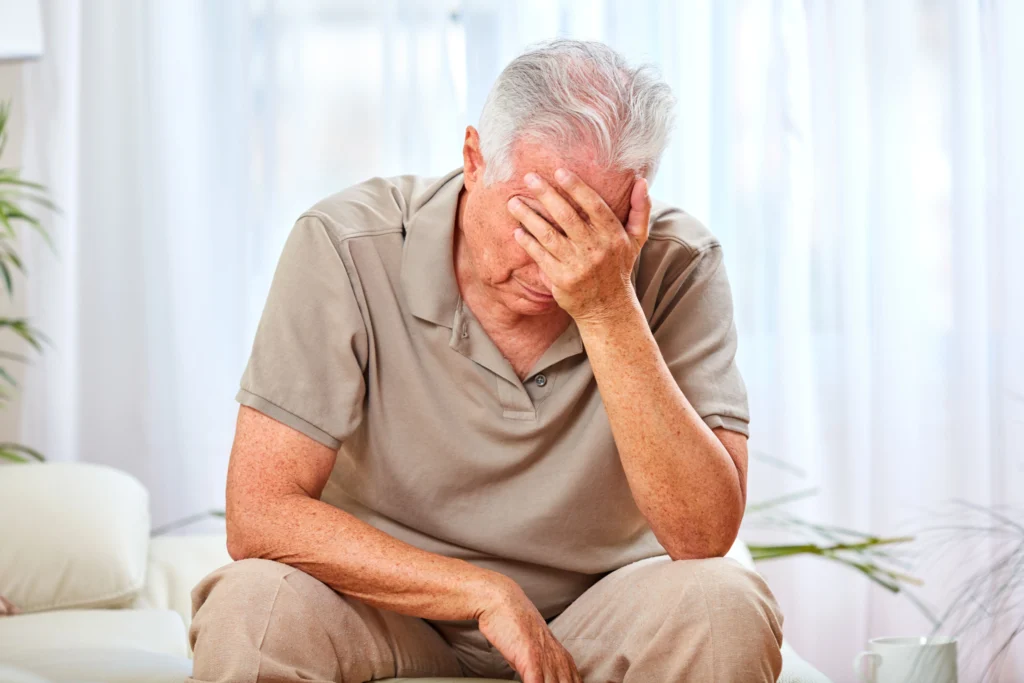
Increased Heart Rate
A rapid, weak pulse compensates for low blood volume. The heart pumps harder to maintain circulation, straining cardiovascular health. Check the radial (wrist) pulse—over 100 BPM at rest may indicate dehydration, especially with dizziness.
Low Blood Pressure
Dehydration reduces blood volume, causing hypotension. Seniors may report faintness or exhibit cold, clammy skin. Use a home blood pressure monitor: a systolic reading below 90 mmHg (or a significant drop upon standing) requires intervention. Chronic low BP increases fall risks and organ damage.
What to Do
Prevent dehydration by encouraging regular fluid intake—offer water hourly, even if thirst isn’t expressed. Hydrating foods like watermelon, cucumbers, or soups boost moisture. Monitor urine color; light yellow indicates proper hydration. In hot weather, increase fluids and avoid outdoor activities during peak heat. Use reminders or flavored water to motivate drinking. If symptoms persist (e.g., dark urine, dizziness), consult a doctor to address underlying issues or adjust medications. Immediate care is vital for severe signs like confusion or rapid heartbeat. Stay proactive to safeguard health.
Encourage Regular Fluid Intake
Seniors often have diminished thirst signals, making proactive hydration essential. Offer water, herbal teas, or diluted juices in small, frequent servings (e.g., hourly sips). Use reminders, clear cups for visibility, or flavored options to motivate intake. Avoid excessive caffeine or sugary drinks, which can worsen dehydration. Focus on consistency—pair drinking with meals or medication times. For those resistant to fluids, try ice chips or popsicles. Tailor choices to preferences (e.g., warm broths for comfort) to ensure compliance.
Offer Hydrating Foods
Incorporate water-rich foods to supplement fluid intake. Fruits like watermelon, strawberries, and oranges, or veggies like cucumbers and celery, provide natural hydration. Soups, smoothies, yogurt, or gelatin desserts are appealing alternatives for seniors who struggle with drinking. These foods also supply electrolytes and nutrients, supporting overall health. Serve small, easy-to-eat portions to avoid overwhelming them. Hydrating snacks can bridge gaps between meals and reduce reliance on liquids alone.
Monitor Urine Color
Urine color is a reliable hydration indicator. Aim for pale yellow—dark yellow or amber signals dehydration. Check output regularly, even in seniors using incontinence products. Reduced frequency (e.g., fewer than 4 bathroom trips daily) or strong odors also raise red flags. Track patterns and adjust fluid intake accordingly. Persistent dark urine despite interventions warrants medical advice to rule out kidney issues or infections.
Be Mindful of Hot Weather
Seniors are vulnerable to heat-related dehydration. During hot weather, increase fluid intake and limit outdoor activity during peak sun (10 a.m.–4 p.m.). Use fans, AC, or cooling towels to prevent overheating. Watch for signs like excessive sweating, flushed skin, or fatigue. Offer electrolyte solutions if sweating heavily. Ensure lightweight, breathable clothing and shaded areas for those outdoors. Heatwaves demand extra vigilance, as dehydration can escalate rapidly.
Consult a Doctor
Seek medical help if dehydration symptoms (e.g., confusion, rapid heartbeat, no urine for 8+ hours) persist despite interventions. Doctors can assess for underlying causes (e.g., infections, diabetes) or adjust medications (e.g., diuretics) that exacerbate fluid loss. Severe cases may require IV hydration. Regular check-ups help manage chronic conditions affecting hydration. Always act promptly if symptoms suggest organ strain or delirium, as delays can lead to hospitalization.
Conclusion
Recognizing dehydration in seniors requires attentiveness to subtle signs like dark urine, dry skin, confusion, or dizziness. Aging masks thirst, making proactive hydration vital. Regular fluid intake, hydrating foods, and monitoring urine color can prevent complications. Act swiftly if symptoms arise—consult a doctor for persistent issues or severe signs (e.g., rapid heartbeat, fainting). Caregiver vigilance safeguards against risks like falls or organ strain. By prioritizing hydration and understanding age-specific risks, you empower your loved one’s well-being. Early action isn’t just preventive; it’s a lifeline. Stay informed, stay alert, and nurture health daily.



